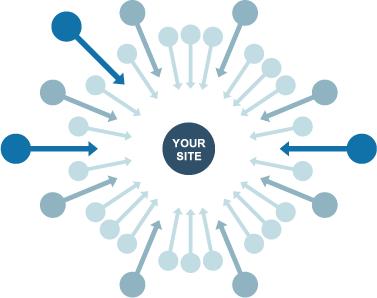Every business needs a website to establish their name on the internet and building a simple website is not enough. To appear at the top of the search engine results page requires time, research, dedication and hardwork.
Learning how to optimize your website takes time. For some businesses that prefer to hire an SEO expert, they can easily boost their traffic by simply allotting a budget for it. For others, they prefer to take matters into their own hands and optimized their newly built website on their own.
There are three basic steps to help you get on the right path.
Step1: Make your search results look good by applying on-site optimization basics.
You probably heard how powerful building links are. But link building will not serve any purpose when you skip good on-site optimization techniques like using keywords, title tags and meta descriptions.
Using relevant keywords is extremely important. You may be tempted to overstuff your website or your blog post with keywords but this is not the way to do it. Don't be overly generous with these and keep things simple. You can use up to five keyword phases per page and optimize those.
If you are not sure what keywords to use, you can try utilizing Google’s AdWords Keyword Tool to get suggestions. If you truly want to perform keyword research on a deeper level, there are other downloadable and paid tools you can use.
The title tags and meta descriptions provide search engines an insight on what your post is truly about. In the title tag, make sure that you include your business or brand name and keywords that relate to that specific page only.
As for the meta descriptions, fill it in while thinking about your audience and tailor it specifically for readers. Use main keywords as the meta description is visible in search engine results. If you are using WordPress, applying this tip will be easy.
Step 2: Write the best and most informative content you can.
If you are up-to-date with the latest optimization techniques, writing excellent contents are all the rage right now. Content development and content marketing is great for both your readers and search engines. The more informative and quality content you have, the more readers will be drawn to your website. And the more content you have, the more likely search engines will index your material.
You can produce blog posts, news, tutorials or guides, videos, podcasts and infographs. What makes content development one of the best ways to boost your site traffic is they are generally more engaging. Readers can easily share a content they love through Twitter, Facebook and other social media accounts they have.
Step 3: Slowly start building links.
The main goal of link building is to get other websites to link to yours. You can consider search engine results as a popularity contest, and links can be considered as votes. When another reliable and well-optimized website links to your own, this casts a vote on your popularity - it tells search engines that your website deserves to be ranked high.
There are lots of ways to get links. If you read further about link building, you will come across three kinds - organic, whitehat and blackhat links.
Organic links are the links that are formed naturally and not ask for. They are also the best kind of links to have that can seriously boost your ranking, especially when you can get them from authority websites.
Whitehat links are good links that you try to build for yourself while blackhat links are low quality and typically spammy - the kind of links you must avoid.
Many websites find it difficult to naturally generate organic links as they take a lot of time. But there are link building services you can acquire for and link building strategies you can do, such as creating search profiles, signing up to local directories, submitting guest blogs and reaching out to other websites to link back to you.
Before following these three steps, it is best that you have a tool to monitor the results of your efforts. Google Analytics offers great options in learning more about the visitors of your website.
You can also monitor organic search traffic using this tool and see the keywords people are using to find your website. If you follow these three steps above and monitor your results, you will definitely start off on the right track when it comes to SEO.












No Comments